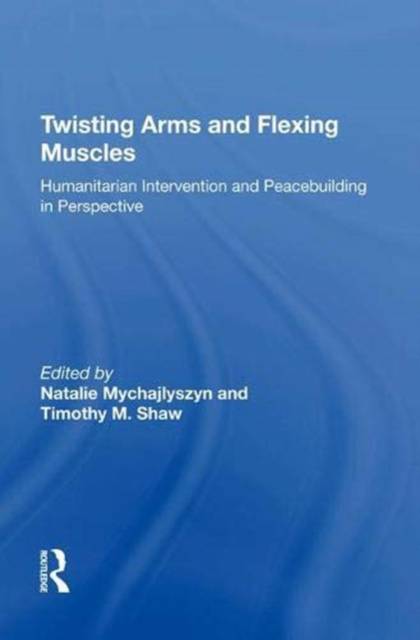
- Afhalen na 1 uur in een winkel met voorraad
- Gratis thuislevering in België vanaf € 30
- Ruim aanbod met 7 miljoen producten
- Afhalen na 1 uur in een winkel met voorraad
- Gratis thuislevering in België vanaf € 30
- Ruim aanbod met 7 miljoen producten
Zoeken
Twisting Arms and Flexing Muscles
Humanitarian Intervention and Peacebuilding in Perspective
Timothy M Shaw
Paperback | Engels
€ 56,95
+ 113 punten
Uitvoering
Omschrijving
Military force is considered essentially a non-military pursuit in international relations, specifically, humanitarian intervention and peacebuilding. This coherent and interrelated study makes an important contribution to the existing literature by concentrating on empirical analyses. It is illustrated by key case studies which consider the complexities and dynamics associated with the application of military force. Of particular importance in this context is the emphasis on areas of recent crisis, such as Africa and the Balkans. The book considers whether our understanding of military force and its utility is outdated and finds that new considerations are required in order to capture the demands of the new environment and generate more appropriate and effective responses. The volume will have wide appeal, ranging from students and academic researchers to high-level policy makers and policy analysts in the military, governance and democratization and peacebuilding communities, as well as area-specialists and non-governmental organizations.
Specificaties
Betrokkenen
- Auteur(s):
- Uitgeverij:
Inhoud
- Aantal bladzijden:
- 162
- Taal:
- Engels
Eigenschappen
- Productcode (EAN):
- 9781138623101
- Verschijningsdatum:
- 18/09/2018
- Uitvoering:
- Paperback
- Formaat:
- Trade paperback (VS)
- Afmetingen:
- 152 mm x 229 mm
- Gewicht:
- 299 g

Alleen bij Standaard Boekhandel
+ 113 punten op je klantenkaart van Standaard Boekhandel
Beoordelingen
We publiceren alleen reviews die voldoen aan de voorwaarden voor reviews. Bekijk onze voorwaarden voor reviews.











